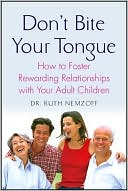Category Books
- Fiction Books & Literature
- Graphic Novels
- Horror
- Mystery & Crime
- Poetry
- Romance Books
- Science Fiction & Fantasy
- Thrillers
- Westerns
- Ages 0-2
- Ages 3-5
- Ages 6-8
- Ages 9-12
- Teens
- Children's Books
- African Americans
- Antiques & Collectibles
- Art, Architecture & Photography
- Bibles & Bible Studies
- Biography
- Business Books
- Christianity
- Computer Books & Technology Books
- Cookbooks, Food & Wine
- Crafts & Hobbies Books
- Education & Teaching
- Engineering
- Entertainment
- Foreign Languages
- Game Books
- Gay & Lesbian
- Health Books, Diet & Fitness Books
- History
- Home & Garden
- Humor Books
- Judaism & Judaica
- Law
- Medical Books
- New Age & Spirituality
- Nonfiction
- Parenting & Family
- Pets
- Philosophy
- Political Books & Current Events Books
- Psychology & Psychotherapy
- Reference
- Religion Books
- Science & Nature
- Self Improvement
- Sex & Relationships
- Social Sciences
- Sports & Adventure
- Study Guides & Test Prep
- Travel
- True Crime
- Weddings
- Women's Studies
Don't Bite Your Tongue: How to Foster Rewarding Relationships with Your Adult Children »

Authors: Ruth Nemzoff, Rosalind Chait Barnett
ISBN-13: 9780230605183, ISBN-10: 0230605184
Format: Paperback
Publisher: Palgrave Macmillan
Date Published: August 2008
Edition: (Non-applicable)
Author Biography: Ruth Nemzoff
Dr. Ruth Nemzoff is a resident scholar at Brandeis University's Women's Studies Research Center and lectures widely on family dynamics. Her papers are archived at the Schlesinger Library at Harvard University where she also holds a doctorate in social policy. She has served three terms in the New Hampshire legislature and is the mother of four adult children. She lives in Newton, MA with her husband Harris Berman.
Book Synopsis
Parents make enormous sacrifices helping children become healthy and autonomous adults. And when children are older, popular wisdom advises parents to let go, disconnect, and bite their tongues. But increasing life spans mean that parents and children can spend as many as five or six decades as adults together: actively parenting adult children is a reality for many families.
Dr. Ruth Nemzoff—a leading expert in family dynamics—empowers parents to create close relationships with their adult children, while respecting their independence. Based on personal stories as well as advice that she has accrued from years of coaching, this lively and readable book shows parents how to
-communicate at long distances
-discuss financial issues without using money as a form of control
-speak up when disapproving of an adult child’s partner or childrearing practices
-handle adult children's career choices or other midlife changes
-navigate an adult child’s interreligious, interracial or same sex relationships
No other book treats the challenges of parent and adult offspring relationships as part and parcel of a healthy family dynamic. This practical guide will help parents play a vital and positive role in their children's lives.
10 Tips for Communicating with your Adult Children
Know the environment: Things ain’t what they used to be so make sure you know the realities of life today.
Know yourself: What are your motives? Your child, brilliant psychologist that all children are, will assess your motives so you should, too.
Give up fantasy and deal with reality: You may want life and your children to be perfect, but it isn’t and they aren’t , so enjoy what you have.
Take the long view: Rome wasn’t built in a day and neither will your children or grandchildren be fully mature in a day or even a year…
Expect the unexpected and be flexible enough to change plans.
Don’t bite your tongue, but don’t blurt out every thought you have. Instead of using energy to squelch yourself, use that energy to figure out how to say what you want to say so it can be heard.
Be forgiving: We all make mistakes, all of us are rude sometimes or unintentionally hurtful. Forget holding a grudge!
Talk to your kids about money, yours and Thiers. So you both know what is available for future crises.
Don’t play “go between” between your kids or your kids and your spouse. Now that you are all adults, kids can and should create their own individual relationships with siblings and each parent.
Get a life! Now that your children are grown, share whatever wisdom or skills you have with someone. Make the world a better place.
Table of Contents
Introduction Get Comfortable with Ambiguity 1
1 Don't Let Go, Don't Bite Your Tongue 11
2 Know Yourself 25
3 Say Goodbye to Fantasy and Hello to Reality 39
4 Emerging Adulthood 51
5 Refilling the Nest 65
6 Relationships 81
7 Weddings 97
8 Grandparenting 109
9 Money 127
10 Eternal Triangles 149
11 Communication Tips 165
12 Conclusion 183
13 Yours to Write 193
Appendix I How to Start a Support Group 195
Appendix II Further Readings 197
Appendix III Films and Videos 201
Appendix IV Literature for Book Clubs 207
Notes 209
Bibliography 221
Index 229
Subjects
 Family - Assorted Topics
Family - Assorted Topics  Adult Children
Adult ChildrenParenting & Family
 Family - Assorted Topics
Family - Assorted Topics  Family Relationships
Family RelationshipsSelf Improvement
 Emotional Healing
Emotional Healing  Adult Children
Adult ChildrenSelf Improvement
 Relationships
Relationships  Relationships - Interpersonal
Relationships - InterpersonalSelf Improvement
 See All
See All  Relationships
RelationshipsSelf Improvement
 See All
See All  Self - Improvement
Self - Improvement
